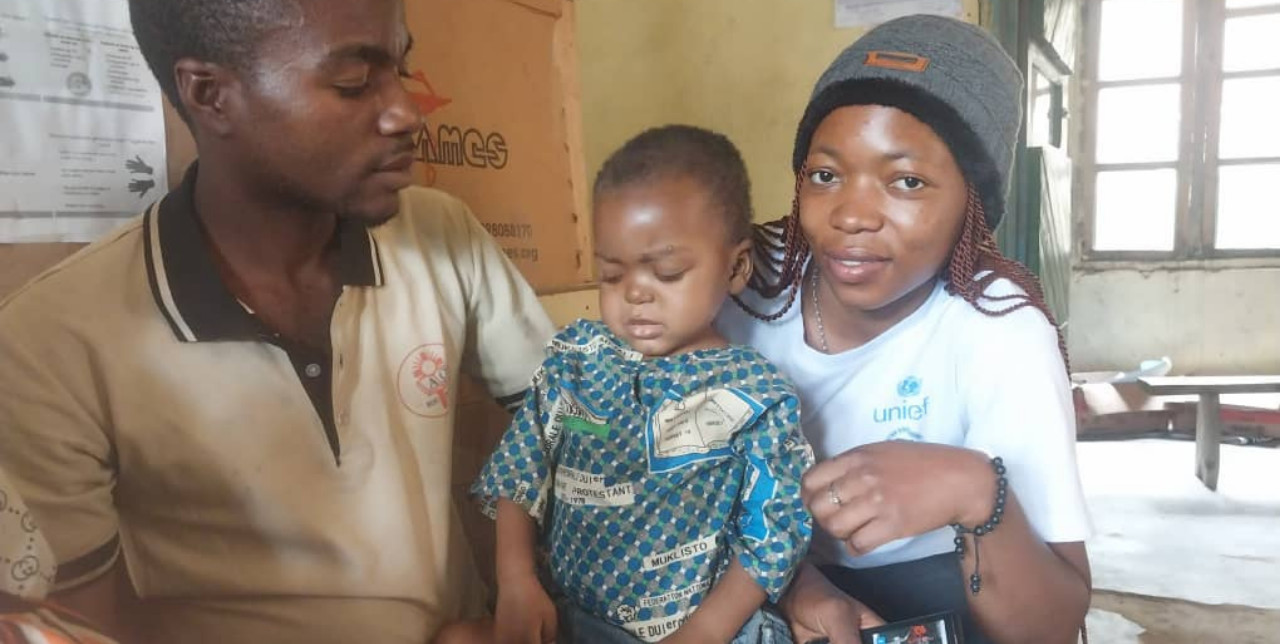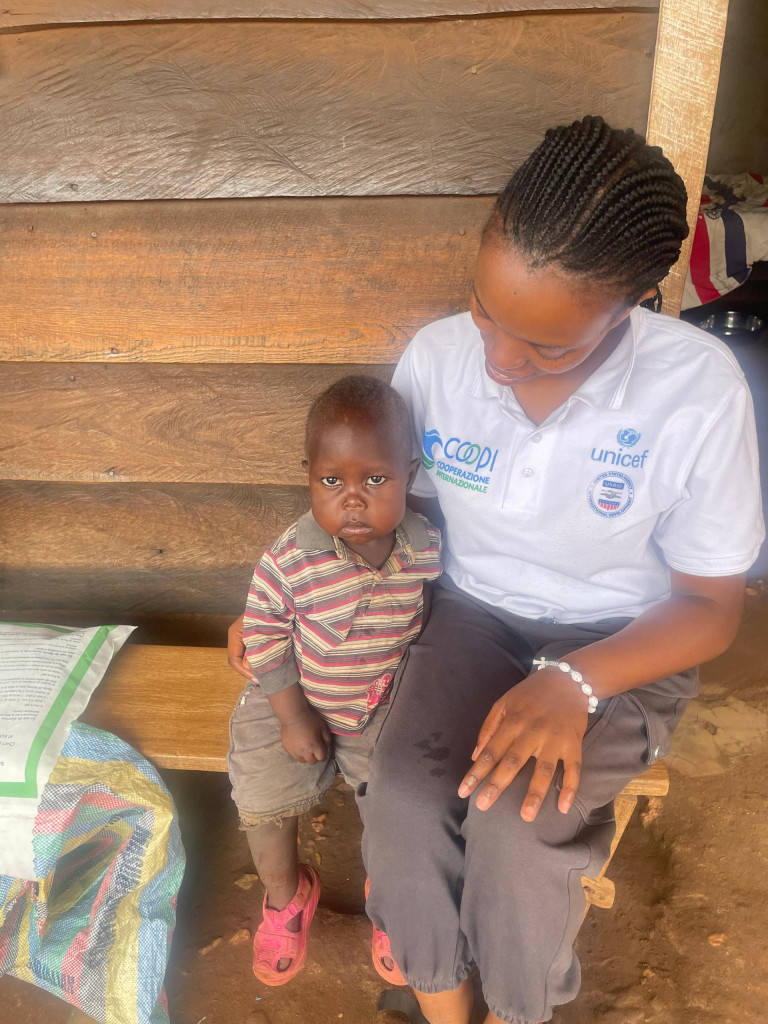06-10-2025 | di COOPI
DRC, an integrated approach to tackle malnutrition in North Kivu
COOPI - Cooperazione Internazionale is working in the province of North Kivu in the Democratic Republic of Congo to ensure that the needs of the most vulnerable populations are met. In particular, COOPI manages the ‘Emergency response project to the nutritional crisis among children under 5 in the health zones of Goma, Karisimbi, Kayna, Alimbongo, Mbinza, Kibirizi and Kirotshe in the province of North Kivu, in the Democratic Republic of Congo’, with the support of Unicef. The aim of the project is to care for 12,500 children suffering from severe acute malnutrition and to advise more than 70,000 parents on appropriate food and health practices, such as infant and young child feeding, both in the community and in health facilities.
The project has already reached a significant number of children, helping families in difficult situations. This is the case of Gloria, a two-year-old girl living in the rural village of Kayna, Lubero territory. Gloria's mother was often sick and was only able to breastfeed for 12 months. Early weaning followed by an often-monotonous family meal did not encourage good growth in the girl and she became acutely malnourished. Gloria was admitted to the treatment programme for 39 days. The mother kept all the appointments and Gloria recovered her health, finishing the treatment with a brachial perimeter greater than 128mm.
In the Kibirizi health zone, the project has reached some beneficiaries, including Christian, the son of a family displaced from their home village by fighting between militias. His parents are unable to farm and have no source of income to meet their basic needs. Due to a lack of means and a monotonous diet, the child was no longer eating properly, and oedema developed in the child at the beginning of July. The parents decided to take the child back to the Tulizeni health centre, where the doctor found that the child was suffering from malnutrition with no medical complications. After 42 days of treatment, the oedema disappeared and he was declared cured. The child's health was restored thanks to the appropriate care he received at Tulizeni from his admission to his discharge.
Alphonse comes from the village of Hutwe, in the Alibomgo health zone. His father recounts the difficulties faced by the family. "After a period of war, we were displaced and our son was separated from his mother. The living conditions weren't easy, and that's when even his eating habits changed, and the child began to refuse the food that the family had difficulty finding in the refuge area. He began to pass watery stools for a few days, and we thought it best to go to our village. The oedema started to appear and persisted, as we thought it was food poisoning. During this period, the area had no partners. When we saw that the child's health wasn't improving, we went to the Luseke health centre, which confirmed that it was malnutrition and transferred us to Vutsorovya. Once we arrived at the health centre, the child was diagnosed as malnourished with medical complications and transferred to the Alimbongo general referral hospital, where Alphonse received the treatment he needed to recover".
The stories of Gloria, Christian and Alphonse bear witness to the importance and impact of COOPI's project for families in difficulty and displaced by the war in North Kivu. One of the aims of the project is to improve the use and quality of nutrition services in health and community facilities, and to establish a participatory coordination, planning, monitoring and evaluation mechanism that is up and running in the health zones.
Operating in the DRC since 1977, COOPI has carried out 370 projects that have benefited more than 15 million people. In 2024, COOPI is managing 19 projects in six regions of the country, reaching more than 430,000 people in a context marked by conflict, instability and a lack of basic services. The organisation works to ensure food security, combat malnutrition and protect the most vulnerable, paying particular attention to women and children who are victims of violence, offering them care, psychosocial support and reintegration projects.




 Democratic Republic of the Congo
Democratic Republic of the Congo
